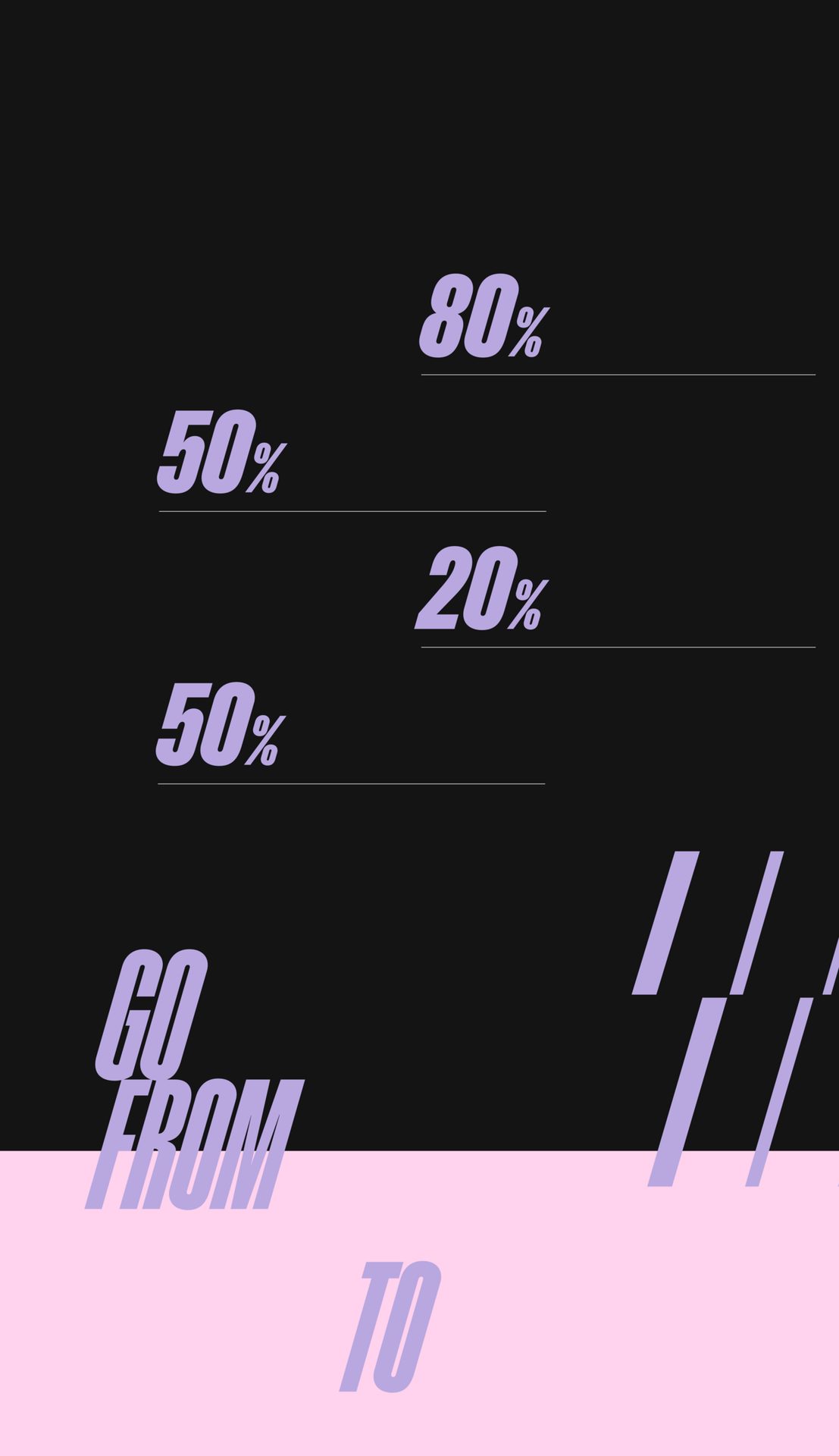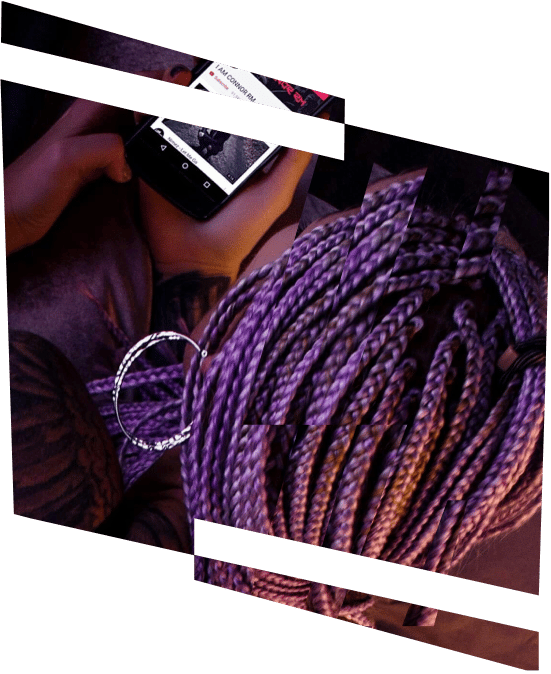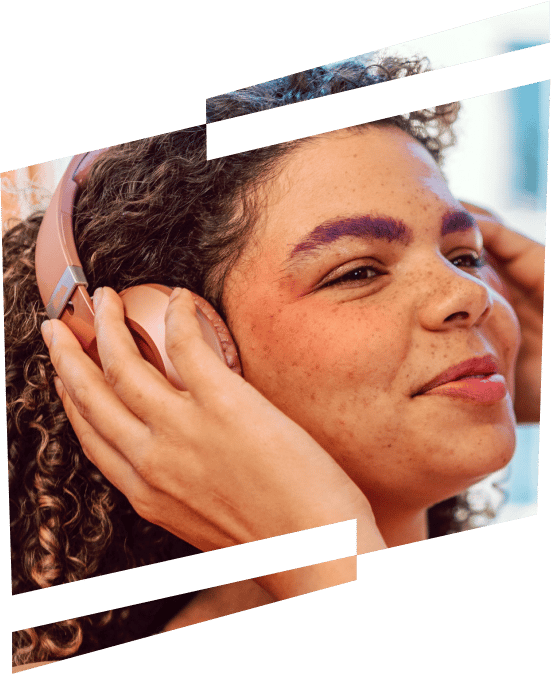WANT TO GET THE INSIGHTS?
Get the best experience by viewing it on your desktop.


Five
Principles
04

Reciprocal loyalty in the digital world
Five ways to build reciprocal loyalty
Gen Z’s fluid responsiveness presents a dynamic opportunity for brands to evolve. How?

Actively listen to truly meet changing needs.
Commit to continuous discovery
Design effortless experiences.
Discover their preferences
Guide confident choices
Discover their concerns
Show respect and give them control
Discover their boundaries
Be smart, not trendy
Discover what resonates






This insight report isn't any one thing, it's a call for open-minded, continuous discovery. The key to meeting fluidity with fluidity, adapting to Gen Z’s evolving needs, is active, ongoing listening. If traditional discovery is a snapshot, continuous is a real-time stream. It’s a dynamic, evolving dialogue that mirrors Gen Z’s fluidity.
For too long brands have assumed they know Gen Z, but you know what they say about assumptions. So don't assume, listen. Don't talk at them,
talk to them. Do. The. Research. Then do some more in 3-6 months.
And do some more again. Then adapt to the new insights.
This cyclical process of listening, interpreting, acting is never over – it should be a regular and evolving exercise. It allows brands to capture
micro-shifts as they happen and even anticipate emerging trends before they surface in the mainstream.
Gen Z is always shifting, so if your finger isn't on the pulse, where is it?
Actively listen to truly meet changing needs
Guessing and assuming
Following trends and relying on old methods
Investing to regularly listen to your audience
Continual pulse surveys, social listening, insight workshops, advisory panels
Investing to discover the right approach for you


Don't assume you know Gen Z, get to know them

Don't talk at them, talk to them
Discover their preferences
Design effortless experiences
67% of our Gen Z respondents said quality, price and speed are very important - but this drops to 12% if 'next day delivery' costs. Why is this important? Gen Z value convenience - but not if they must pay for it. And convenience isn't just about speed, it's about ease, too - ease of use being very important in a digital experience for 90% of Gen Z.
This suggests effortlessness as a leading value across Gen Z's entire experience. Adaptability is what Gen Z does best. But it also makes them hyper-aware of friction in a brand experience. Speed and ease aren’t perks - they’re non-negotiables. In a world of rapid change, slow or clunky experiences aren’t just frustrating – they’re dealbreakers. What older generations might tolerate, Gen Z
simply won’t.
This creates both risk and opportunity: brands that deliver seamless experiences can stand out dramatically in a crowded landscape. But success requires more than isolated convenience features like free delivery.
It demands a holistic approach to optimisation across all touchpoints, creating fluid pathways that anticipate and meet Gen Z's needs.
In short: prioritise effortlessness, or risk being left behind.


A single feature (i.e. delivery convenience)
Invest in UX across multiple touch points
- Gen Z survey response
- Gen Z survey response
“Online is better than offline because of the ease”
“Until they’re made easy, they won't be in my life"
Commit to continuous discovery
Go from
To





Go from
To





Say quality, price and speed are very important - but this drops to 12% if 'next day delivery' costs
67
%

Said ease of use was very or extremely important in a digital experience
90
%

Will potentially make a purchase via a brand social media channel
75
%



Discover their Concerns
Guide confident choices
Gen Z might surf skilfully in chaos, but it doesn’t mean they seek it. In fact, quite the opposite.
For this generation, there’s no such thing as ‘get what you’re given’. If previous generations had ‘the luxury of choice’, Gen Z is faced with an onslaught of options for even the smallest everyday decision. So when brands can make that decision-making process more seamless, Gen Z respond.
For Gen Z, certainty is valuable because it’s rare. And when brands can offer certainty,
loyalty is closer than ever. But what does that look like? Constant reassurance and showing up in spaces they trust – which aren’t always the spaces you’d expect.

Often read online reviews before buying
85
%

Are likely to research product specs and
compare prices
75
%


Will potentially make a purchase via a brand social media channel
25
%
A new segment: Reassurance seekers
1/3 consistently prioritise research, wait 'a while' to buy new tech, will often buy from the same brands and only shop on trusted sites.



Community can reassure
56% felt UGC positively influenced their brand perception
47% said Celebrity or Influencer Endorsement is unlikely to influence them to purchase, vs only 26% who said it would





UGC’S POSITIVE INFLUENCE
CelebritY’s LACK OF INFLUENCE
UGC is a reassurance superpower




- Gen Z survey response
UGC makes me trust the message more than seeing brand content itself and it feels more relatable so I enjoy seeing it
- Gen Z survey response re. Corteiz
Exclusive in-person events made me feel included and
part of a community meeting other people
- Gen Z survey response re. Patagonia
Their platforms go beyond just promoting products - they actively encourage user involvement
- Gen Z survey response re. Nike
They make me feel part of
the sportswear/casual
wear community





TWO FACTORS: PRESSURE AND MISPERCEPTION #infopocalypse
Tired approaches and content
Digital comparison tools
Online communities
Adaptive content and channel strategy and rigorous KPIs

Listen to podcasts
50
%

Interact with brands via games
20
%

Use Discord
50
%

Trust Reddit
80
%
Some trusted spaces remain underexplored for brands, but could be key in providing reassurance
Go from
To







Discover what resonates
BE SMART, NOT TRENDY
Seeing Gen Z as chaotic meant that churning out an unending deluge of content under the guise of 'test and learn' felt like the only option. Seeing Gen Z as wedded to trends, too, meant sticking to trends felt like an informed approach.
However, shifting perspective to see Gen Z as fluid and adaptive means a targeted, discovery-led approach is a smarter bet. So, instead of throwing everything to see what sticks, spend more time listening to see what will resonate. Instead of jumping on every new tech trend, ask what they truly want and need, then wisely invest.
We predict that brands who take this approach
will prove loyalty and influence Gen Z to shift in their direction.



25% don't want the latest products, almost never buy newly released tech, and are rarely the first among their friends to try a new digital service.
A new segment: Late adopters


Gen Z: digital first with a preference for social media
Although apps are very popular too

AR/VR and chatbots aren't a priority even though new tech is a breeze






33% of Gen Z would be put off a new brand by their use of AI features or experiences
33% of Gen Z would be put off a new brand by their use of AI features or experiences
Just 4% would prioritise AR/VR experiences over chatbots 11%, UGC (16%) or loyalty programmes (66%)
but Put off by AI
COMFY WITH NEW TECH
and don’t Prioritise AR/Vr or chatbots
Interact with brands several times a week online
86
%

Interact with brands via Social Media
98
%

Interact with branded apps weekly
- so at least 50 times per year
70
%








- Gen Z survey response
[VR/AR is] inaccessible and could
make some people feel excluded
from campaigns
- Gen Z survey response
I think it’s [VR/AR] interesting
but dystopian
- Gen Z survey response
I’ve seen one brand use AR/VR
and it makes me less likely to
continue following and purchasing from them as it feels quite fake
and inauthentic
Images and video matter more than social or stories



Discover what they actually want, use and need, and invest in the right areas
Discovery-first, adaptive social media strategy
Invest in headless CMS to react to changing channel needs with ease
"We need Chatbots/AI/
Metaverse because Gen Z is digital first!"
Trend-first, reactive
social media posts
Go from
To









In a chaotic world, boundaries offer Gen Z stability and control. While they're fluid and adaptive, constantly treading water is tiring. Boundaries give them something to hold to calculate their next move. Data privacy is a clear boundary: Gen Z values personalisation but expects transparency and control over their data.
We predict that brands that respect this through transparency and education - and offer unintrusive, tailored experiences - can shift Gen Z from a conflicted to aligned state - not as fussed about privacy as they were while in the dark. Conversely, brands that over-personalise without respecting boundaries risk alienating this privacy-sensitive generation.
respect and give them control
Most value privacy
and almost no-one IS very comfortable with THEIR data being uSED
1/3 ARE uncomfortable with THEIR data BEING usED


Data privacy also matters


85
%
Will engage with personalised content
0
%
Said personalisation was not at
all important
Discover their boundaries
Personalisation
matters

- Gen Z survey response
Don't like it. Unclear what they are doing with the data, and no one is usually bothered to read through
the T&Cs



It boils down to a question of trust




- Gen Z survey response re. Nike
Meh it can be intrusive sometimes
- Gen Z survey response
I don't like the tailored ads as it creeps me out
- Gen Z survey response
It's hard to know the line to be honest... not sure how
I feel
said personalisation could influence them to choose a brand
were undecided on its pull

A state of conflict is clear
Negativity towards pop-ups and tailored ads

50
%
of Gen Z would be put off a new brand that requires logins or signups online

66
%
Only want 'trusted' sites to remember their checkout details

Private on privacy: Long, unreadable T&Cs for personalised experiences, and taking largely what they like
Minimal privacy-focused content
Personalised ads and popups
Digital comparison tools
Be transparent: show them what you capture, what it helps them do, and what it means for them - in words they understand
Open privacy vs. personalisation controls: let users choose their privacy comfort level and amend their experience accordingly
Educational, engaging content strategy
Non-intrusive digital marketing strategy
Go from
To










